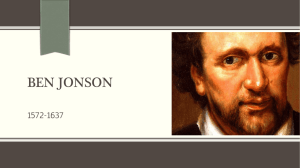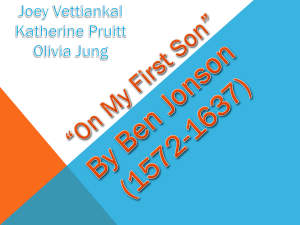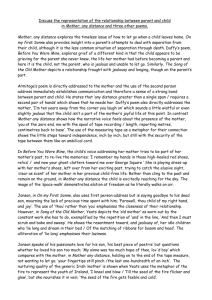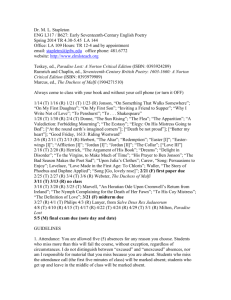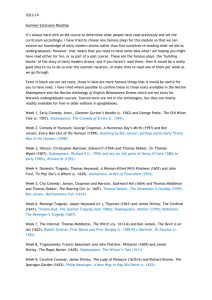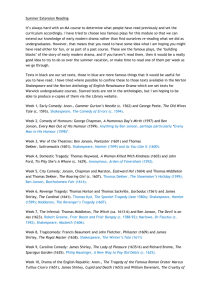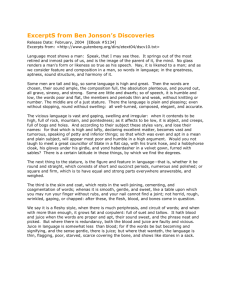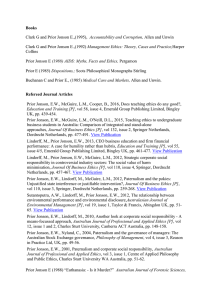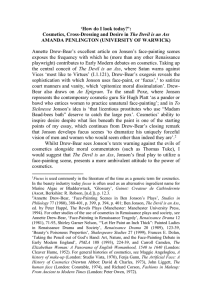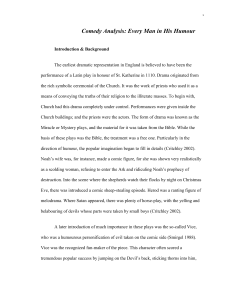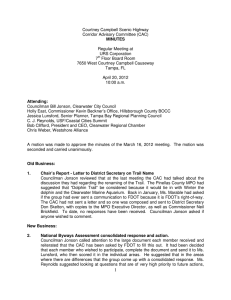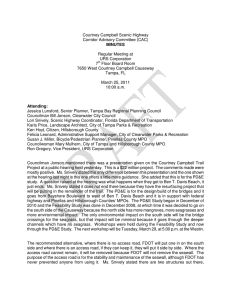The Complete Critical Guide to ... Routledge, 2002), 229pp, ISBN 0415222281
advertisement
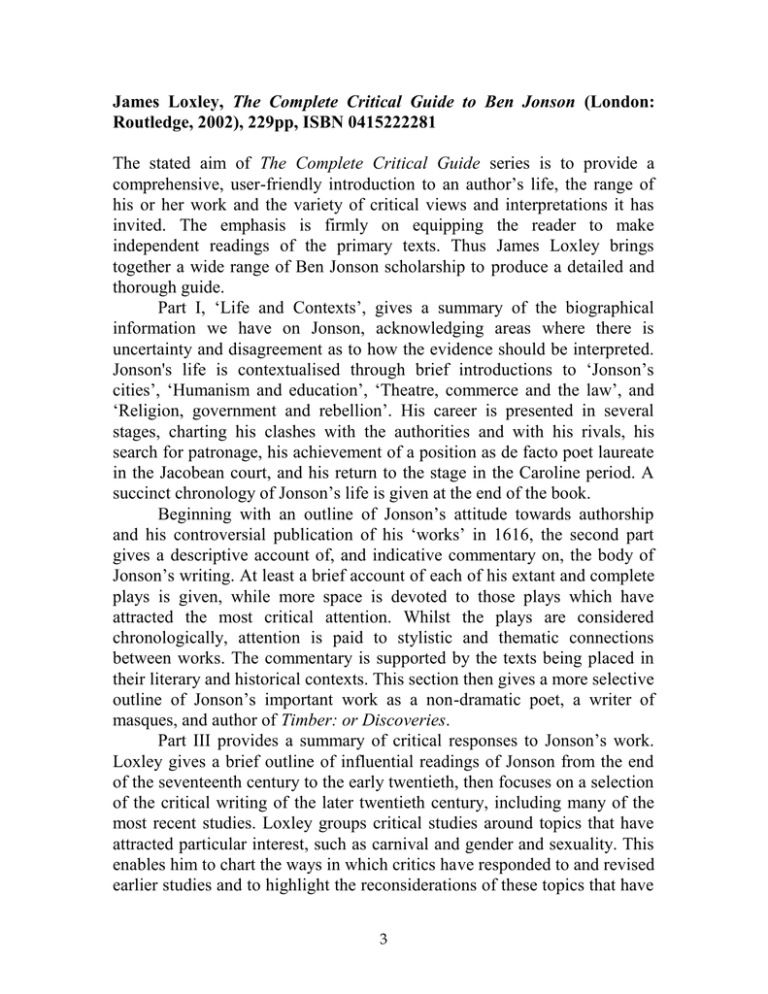
James Loxley, The Complete Critical Guide to Ben Jonson (London: Routledge, 2002), 229pp, ISBN 0415222281 The stated aim of The Complete Critical Guide series is to provide a comprehensive, user-friendly introduction to an author’s life, the range of his or her work and the variety of critical views and interpretations it has invited. The emphasis is firmly on equipping the reader to make independent readings of the primary texts. Thus James Loxley brings together a wide range of Ben Jonson scholarship to produce a detailed and thorough guide. Part I, ‘Life and Contexts’, gives a summary of the biographical information we have on Jonson, acknowledging areas where there is uncertainty and disagreement as to how the evidence should be interpreted. Jonson's life is contextualised through brief introductions to ‘Jonson’s cities’, ‘Humanism and education’, ‘Theatre, commerce and the law’, and ‘Religion, government and rebellion’. His career is presented in several stages, charting his clashes with the authorities and with his rivals, his search for patronage, his achievement of a position as de facto poet laureate in the Jacobean court, and his return to the stage in the Caroline period. A succinct chronology of Jonson’s life is given at the end of the book. Beginning with an outline of Jonson’s attitude towards authorship and his controversial publication of his ‘works’ in 1616, the second part gives a descriptive account of, and indicative commentary on, the body of Jonson’s writing. At least a brief account of each of his extant and complete plays is given, while more space is devoted to those plays which have attracted the most critical attention. Whilst the plays are considered chronologically, attention is paid to stylistic and thematic connections between works. The commentary is supported by the texts being placed in their literary and historical contexts. This section then gives a more selective outline of Jonson’s important work as a non-dramatic poet, a writer of masques, and author of Timber: or Discoveries. Part III provides a summary of critical responses to Jonson’s work. Loxley gives a brief outline of influential readings of Jonson from the end of the seventeenth century to the early twentieth, then focuses on a selection of the critical writing of the later twentieth century, including many of the most recent studies. Loxley groups critical studies around topics that have attracted particular interest, such as carnival and gender and sexuality. This enables him to chart the ways in which critics have responded to and revised earlier studies and to highlight the reconsiderations of these topics that have 3 resulted from various critical approaches, primarily feminism, Marxism and New Historicism. While Part III focuses on criticism, Loxley indicates the work that has been done by recent critics, and guides his reader towards further reading, throughout the earlier parts too. He includes a comprehensive and up-todate bibliography. The organisation of this book into a series of short sections, and its clear system of cross-referencing, make it suitable for consultation in a companion-style fashion, while Loxley maintains a coherent and involving narrative that invites the reader to read his book through. Jane Rickard University of Warwick 4
